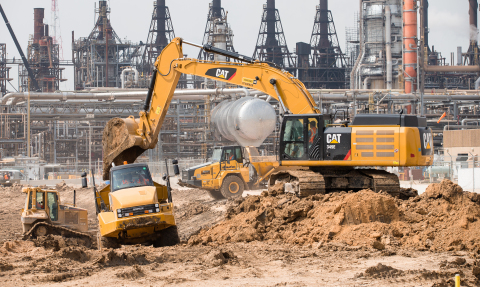Learn How Much Texas Contractor Insurance Costs
January 12, 2018
Proper General Liability Coverage is Not Cheap
Contractors have the responsibility of ensuring that maximum coordination is maintained at their job sites. This implies that they must operate jointly with architects and engineers, administer material supplies, communicate relevant job information and supervise the working site. As a consequence of these numerous responsibilities, an individual contractor is therefore exposed to much risks that might occur unexpectedly during the working days. The emergence of these risks makes it necessary to have insurance covers to cover such peril exposure.
Texas contractor liability insurance varies significantly based on the type of cover needed. The following are among the insurance covers offered to contractors in Texas with factors that determine their cost and their typical cost
Commercial property insurance. This insurance covers operating equipment and tools that play critical roles in ensuring completion of different projects. It covers losses such as fire, theft or even damage during operation. The insurance cost of this cover depends highly on the number, size, and age of contractors’ tools being covered. In Texas, the cost of this type of insurance cover is between $253 – $1,630. There are also average limits, premiums, and deductibles charged on general contractor insurance policies.
Texas Construction is Booming and Insurance is Important
The next cover ideal for the contractor’s insurance in Texas is Workers compensation. This type of insurance covers unexpected risks occurring despite employees effort to adhere to construction safety measures and rules. The cost incurred for this cover depends highly on the number of employees covered and a probability of the risk. This type of insurance applies even when general contractor hires either independent contractors and subcontractors. The cost of worker’s compensation insurance to cover for workers in Texas is typicalyl $5,723 – $7,656.
In Texas, a contractor can apply for professional liability insurance that protects against been sued as a result of disposing of hazardous waste material which might affect other people. The cost of this insurance cover in Texas, depending on the level of dangerous waste products arranged. Being sued for poor work could lead to a charge of approximately hundreds of thousands of dollars. In Texas, the cost of this contractor insurance cover is about $500 – $639.
The contractor can also take the cost of purchasing the commercial auto insurance plan. This cover protects employees against auto accidents such as when using vehicles and machines to transport working materials. The cover repair expenses and legal costs in case the contractor is sued. The cost of commercial auto insurance cover in Texas in typically $1,854 – $2,846. There are many different ways to learn more about insurance on the radio as well. Use the invaluable resources at your disposal to educate yourself as much as possible about the wonderful world of insurance!
We hope this helps give some insight as to what you can anticipate for your insurance costs!
Top Reasons to Bond Your California Contracting Business
November 26, 2017

In construction, the term construction bond is commonly referred as the contract bond. It is simply a comprehend as a type of surety bond; an assurance that the principal will perform accordingly on the project as per the terms are written in a contract. Companies sign a bond for construction contracting business to make sure the projects are completed as per the set parameters and within the timeframe.
A California contractor bond in the construction business is a guarantee that assures:
• A bid bond assures that contractors submit serious proposals and have financial credentials to accept the job.
• A contract assures that the contractor or subcontractor complete the project as per the terms stated in the contract.
• A bond assures that if there will be money, payment will be done to all the project participants, even if the prime contractor goes bankrupt.
Top reasons to bond your construction contracting business are listed below:
1. Public works budgets for future contracting contracts
The construction of roads and bridges continue to grow at a fast pace, generated by both environmental and pending multiyear transportation bills for public work projects. Even the projects for future infrastructure investment are already in a number of budgets. Various states, counties, schools, cities have sold investment bonds to construct school campuses and infrastructure development. It means that people will get ample amount of opportunities to get work with surety support.
2. Balancing with the private work cycles
In an economy that is moving at a slow pace, spending on the residential as well as commercial sector can be undependable. There are zones witnessing projects with strong movement and on the other hand, there are areas witnessing projects delayed or taken off. This a reason to bond your construction contracting business to help fill those dips from private work.
3. In private work demand of surety bonds have increased, lately.
In a slow-moving economy, funding of private work has to be cautious. Many lenders now make it a necessity that the contractors to provide a performance bond and payment bonds. In this way, most businesses protect their building fund accounts by taking surety bonds from their contractors.
4. Establishing more experience with a surety makes it easier for you get huge, profitable projects
Having a good record of completing all sorts of small work contracts on-time with profit is different. A bond for construction contracting business increases your area of reach, it shows that you are willing to stretch and accountable for your projects.
5. Establishing a relationship with a professional surety agent avails outside consultant with extra knowledge on building a construction business successfully
Surety agent comes with an extra package of additional information for you to use. Surety agent has worked with several similar projects, and their experience can be of your help.
Bond your construction contracting business with the aim to make your firm a successful business.

Are Contractor Performance Bonds Really Necessary?
November 20, 2017
More often than not, you can hear someone sharing their unpleasant experience where they hired a person that turned out to be unreliable, did a sloppy and unsatisfactory job, went over the budget limits or the deadline, and so on. The most common method for avoiding such situations is through a performance bond.
What are performance bonds?
A performance bond is issued between a contractor and a client (sometimes referred to as an obligee), and usually there’s an insurance company or a bank acting as a mediator. The point of the performance bond is to make sure the contractor fulfills a job that was requested by an obligee. So, for example, say you want to build a house and you find a person willing to do that job for you. However, you want to make sure he uses the money you give only for building the house, so the two of you form a performance bond.
How Do Performance Bonds Work?
Let’s follow the mentioned example, and let’s say the house you want to build is worth $100,000. In most cases, here the contractor would reach out to an insurance company. Then, depending on these three factors:
· Bond type
So a performance bond in this case.
· Bond amount
In this case, $100,000
· Contractor’s risk
The reputation that a contractor has, along with his previous work and similar contracts that he fulfilled or didn’t fulfil.
Ultimately, the contractor will either fulfill the requirements stated in the performance bond or he won’t. If the contractor you found builds the house you want without a hitch, he gets the money and you get the house. If, however, he takes too long, spends too much money, or you get an unstable, unsafe or uncomfortable house, the insurance company will refund all the money you invested, which was stated as the bond amount.
This way, both parties are protected, and you will be assured that the work done would be exactly what you requested. Here is a closer look at how they work.
How Much Do Performance Bonds Cost?
It depends on the final factor mentioned before – contractor’s risk. If the contractor is a well-known and widely respected constructor that already had deals with the same insurance company, they know that they won’t have to pay the refund, since he’s not likely to disrespect his part of the agreement. In this case it is usually requested from the contractor to pay around 0.5-1% of the total bond amount, and vice-versa, an unknown or first-time contractor would be requested to pay from 5% to even more than half the total bond amount.
Are Performance Bonds Really Necessary?
This mostly depends on what type of work you want done. For construction work, such as the example that we followed until now, it’s almost always necessary. If you’re dealing with other areas of work, or you’ve found a contractor that you personally know (a friend of yours, for example) and you’re sure he’ll fulfil his part of the agreement, you might want to bypass the performance bond process. However, in most cases, it’s better to be save than sorry.

What are the Different Types of Contractor Bonds?
November 16, 2017
Do you work in the construction industry or have a client in the construction industry? Have you heard the term bonds or contractor bonds? If you don’t know what contractor bond is, worry not. Contractor bond is an assurance to the obligee that he/ she will perform as promised. If the contractor fails to perform, then the surety company (issuer of bond) will pay damages to the obligee (project owner). The amount of claim plus the cost is then recovered from the contractor by the surety company. This’s exactly how bonding works. When the contractor is hired, it’s always required that a bond is secured. The contract bonds assist in regulating the construction industry.
The following are the major contact bonds used.
Bid bonds
This bond protects the project owner by assuring that the contractor will honor the original bid amount when entering the contract. The obligee can sue the contractor and the issuer of the bond (surety) to implement the bond. Frequently, bid bonds are normally presented with other financial proposals to the project owners. Also, note that not all projects require bid bonds.
Performance bonds
This is a bond that assures that the contractor concludes the job according to terms of the construction contract. In short, this bond ensures that the project is completed satisfactorily as outlined in the contract. It protects the obligee from contractor’s poor quality work or failure to complete the project. If the contractor leaves the job incomplete or completes poorly, or past the deadline, then the surety may be liable to complete the job, or contract a replacement contractor, or compensate the project owner for completing the project.
It’s normally attached with payment bond as both protect the obligee from suffering losses due to faults of the contractor.
Payment bonds
It ensures that suppliers and subcontractors are properly paid for their input to a project. If the suppliers and subcontractors fail to get their dues, then they are reimbursed by the surety who will, later on, be reimbursed by the contractor.
Contract license bonds
This bond enables the contractor to be licensed for a project. The contractor has to purchase this bond in order to be qualified for a project. The contractors will always face consequences if they try to work on projects without a contract license bond or if they use an expired one. Repercussions may include weighty fines and license revocation.
For many construction companies, qualifying for contract bond can always be an annoying part of the business. Getting to know the different types of contract bonds and understanding how they work enable contractors to appreciate bonding process. It’s imperative to consult before entering into a contract bond.

